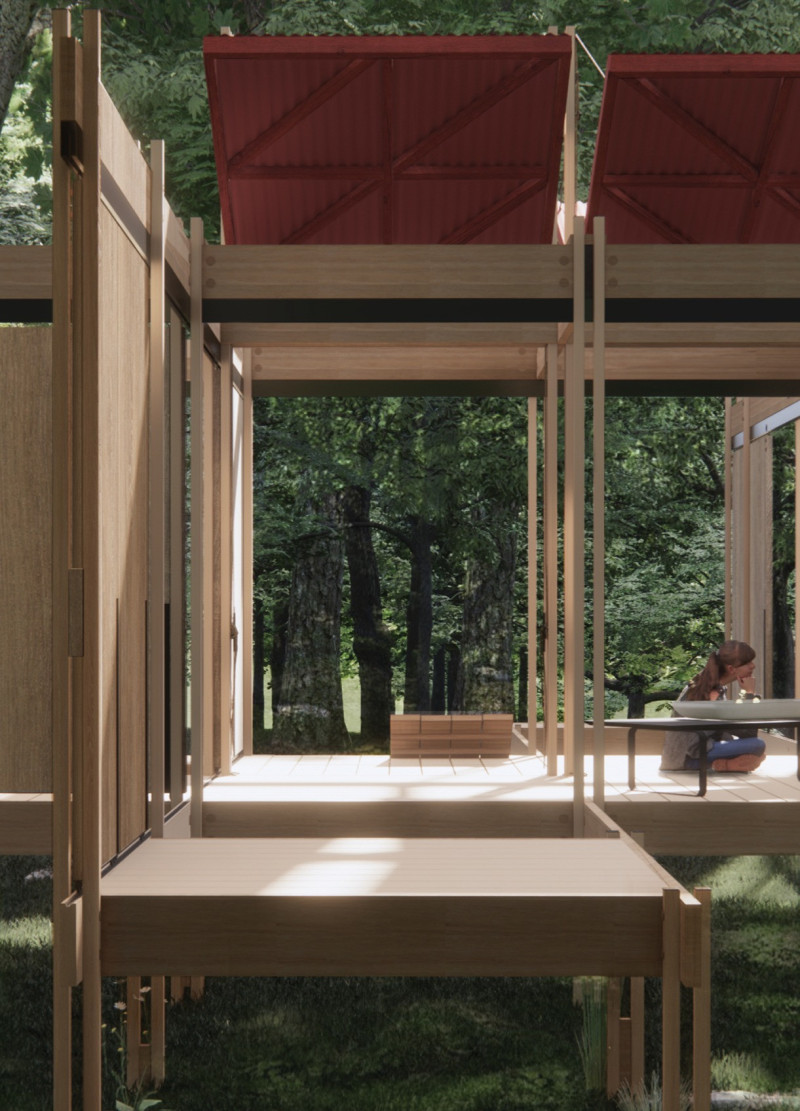5 key facts about this project
The primary intention behind "Alter" is to create a living space that can adapt to the varying needs of its users. This adaptability is accomplished through a modular design, allowing different areas within the structure to be utilized according to the user’s preferences—whether for communal interaction, solitary reflection, or activity. The cross-shaped layout facilitates movement and encourages exploration, inviting users to experience different spatial configurations as they navigate through the building. Each quadrant serves distinct purposes, seamlessly blending living, working, and contemplative areas to accommodate various activities.
Materiality plays a crucial role in the architectural design of "Alter." The project primarily utilizes a lightweight timber frame, providing a sustainable foundation that minimizes environmental impact. Cedar is incorporated in surface areas, chosen for its durability and natural aesthetic, enhancing the tactile experience within the space. Steel components, used strategically for structural integration, allow for innovative design possibilities while maintaining overall stability. Glazing features prominently in the design, enabling transparency and a visual connection to the surrounding landscape. This thoughtful selection of materials not only aligns with the project's sustainability goals but also creates a cohesive aesthetic that parallels its natural context.
A unique aspect of "Alter" is its adaptive wall systems. These walls are engineered to be movable, allowing users to adjust their environment based on needs or preferences. This feature encourages interaction and engagement, fostering a dynamic relationship between the structure and its occupants. The design emphasizes the importance of user agency, where individuals can actively shape their living conditions. The multi-use platforms extend this concept further, accommodating various functions and encouraging users to redefine traditional boundaries of space and purpose.
The roof design features an innovative mechanism that allows for openings akin to canopies, enhancing natural light and air circulation throughout the interior. This not only improves the building’s energy efficiency but also invites nature to become an integral part of the living experience, blurring the distinctions between indoor and outdoor environments. Such design approaches resonate deeply with the project's ethos, promoting a lifestyle that celebrates both ecological awareness and contemporary living.
In summary, "Alter" stands as a testament to how architecture can thoughtfully respond to the environment while addressing the evolving needs of its users. The strategic use of modular design, sustainable materials, and adaptable spatial arrangements creates a living experience that is both functional and reflective of its natural surroundings. Readers interested in enhancing their understanding of this project are encouraged to explore the architectural plans, sections, and designs to appreciate the thoughtful ideas that underpin "Alter." Engaging with these elements will provide deeper insights into the innovative architectural approaches employed in this project.


























